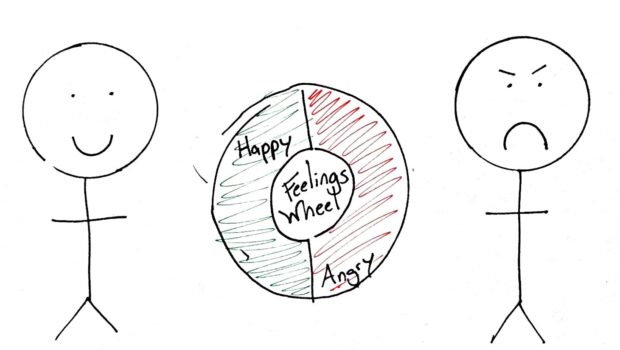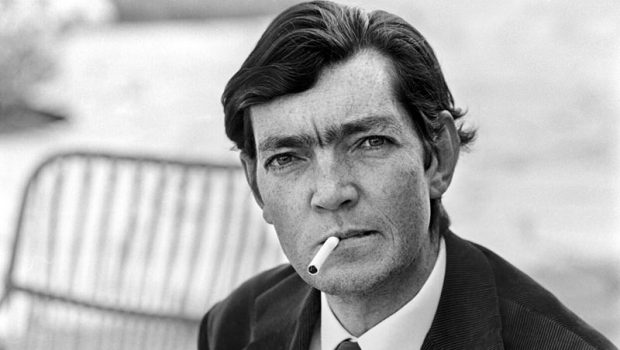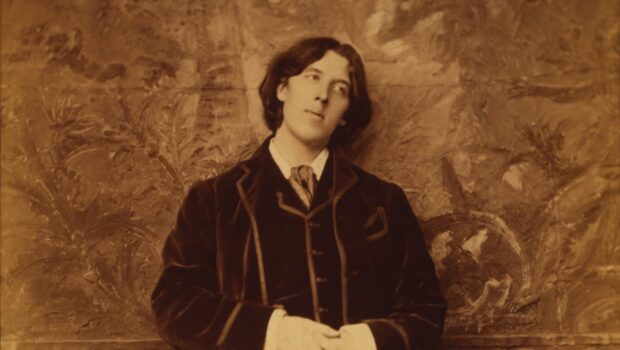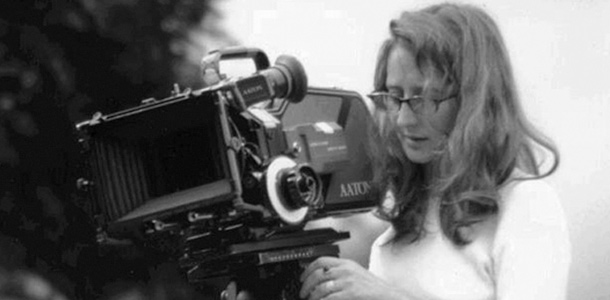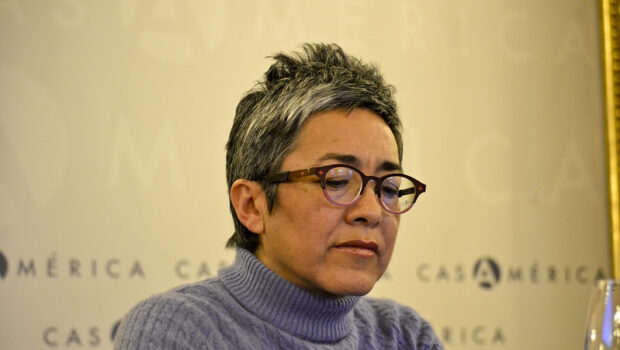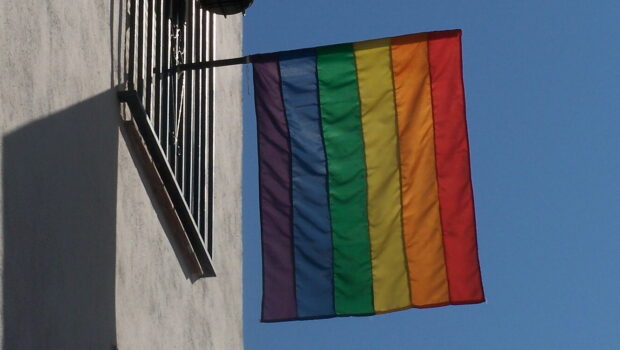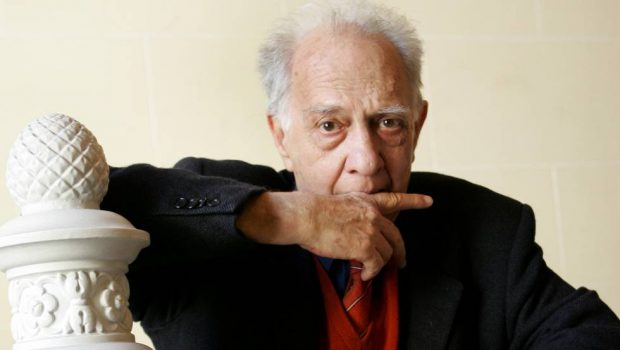“Men are simple creatures.”
Lorís Simón Salum
|
Getting your Trinity Audio player ready...
|
I heard that not long ago. It was hard to parse the flow of emotional reactions that arose from such a cliché and popular statement. Despite the intention to convey that men carry an innate clarity to their existence which can only be contaminated by feminine overthought, I suspected there was more here. It seems to me this statement opened a set of uncompleted implications:
Men are simple creatures; unlike women who are complex. Thus, human complexity does not apply to men.
Men are simple creatures, minimal attention required.
Men are simple, no need.
Men don’t need.
Men don’t matter.
I will speak to why I have such a strong, visceral response to this idea. However, before that, I also want to point out how this concept is founded in a comparative framework (a rather outdated stance, if I could add). The prevalent cultural delusion about men is that they are simple, lightweight, straightforward beings. In this same magical universe, women carry an inherent intensity to their emotions that causes unnecessary conflict. I’ll refrain from moving into feminist narratives, as I’m sure, my dear reader, you’ve heard them all. So let’s talk about men. Let’s talk about men’s clarity. Men’s “simplicity” suggests predictability, which then points to structure, safety and order. Rather existential concepts, don’t you think? It’s a beautiful thought, to imagine people fitting into clean boxes. And yet, my experience of men has been nothing of the sort. These “creatures” have the same capacity for depth and complexity as the next woman.
If I may begin at the beginning, the idea of singularity or simplicity applied to an organism from the homo genus (gender and sex being irrelevant here), strikes me as wishful thinking, and thus infantile, I dare say. Nevertheless, I’ll let my guard down and look a bit deeper, because there is also hope in this fabrication; hope for less suffering. A convoluted and tangled existence opens many points of disadvantage. Everyone who dreams of a life so big yearns for a side of power, because with power you are unmoved, unscathed. We also dream of a life so small where we go unnoticed, unmoved, unscathed. There is an attraction to being a big piece of meat and bone that doesn’t succumb to the vagaries of human betrayal or neglect. Wouldn’t that be nice? To be a tree. Or a koala. A simple being.
Being a tree in a world of people, nonetheless, can come with its fair share of mishaps. Better hope you’re not rooted in the way of a road construction. Also it turns out koalas are not that simple either. They have very specific tastes in their leaves. Placed in the wrong environment, they may starve rather than eat the same leaf over and over. Men, on the other hand, not only have preferences, but they have histories, burdens, dreams and longings; they have difficult relationships and they have misunderstood fathers.
When our minds are confronted with paradoxes that offer no immediate resolution, they activate the biological tendency to categorize the little that is known. We like to find some sort of sense amongst the disorder. Another means of making our lives more manageable is by externalizing the control we lack within. I don’t mean to shed a negative light on this instinct as I am guilty of being human as well. Climbing corporate or social ladders surely gives us relief during rainy days. It may even lend us a purpose. A ladder is simple, isn’t it? It’s just one step after the other, predictable direction. Although, there will have to come a moment when we must look down, for the farther we climb, the deadlier the fall. It’s simple physics. It fits in an equation. Be a man; don’t fall. Don’t fail. Easy peezy lemon squeezy. Climb to the top. Why? Because we don’t know what will happen to men who don’t have ladders.
A man without a ladder, what will become of him? We as a society don’t quite know. We don’t have enough of them to tell. Richard Reeves, author and gender studies scholar, spoke about ontological security (2022) as one of the most desirable qualities in modern masculinity. He describes it as a metaphorical anchor, a certainty about how to be in the world. In a post-feminist era that has undergone the #MeToo movement, who are men supposed to be now? Dutch author and professor Annette Markham states, “We only think about ontological security when we experience its apparent opposite, ontological insecurity.” This simple idea of opposites reminds me of biological homeostasis. Our brain will not bring our attention to everyday functions until something goes off track. We do not tend to it until we fear its loss. It is an efficient system. Simple. Or rather, simple as long as it is not disturbed. Simple in so far there is homeostasis.
A man who just is… Not a leader. Not a provider. Not a protector. A man who can be without risking losing his place in society… I know what you may be thinking, valued reader. There’s a mortgage to pay and mouths to feed; we do not live in a void. Being comes second to survival. Does it though? I would argue that as a society, we have never truthfully allowed men to test this hypothesis out. Our only immediate comparison is women and their historical fight for equity. I can attest to the reality of this country where women have power of choice. This freedom is now translating into our economy, our education system, our homes. I speak of choice here as a phenomenon that is intrinsically free of collective backlash. In today’s Western culture, do men have power of choice? Our muscle memory says, yes. They do. Still, is it a free choice or is it a Hobson’s choice? Meaning, underneath the apparent choice lurks a right and a wrong selection. Men swimming against covert masculine traditions risk, as sociologist William Goode states, losing “their membership cards in the male fraternity.” In addition, women want “real men” who aren’t intimidated by feminine strength. Isn’t that what we say? Facing the other direction, men embracing conventional male traits risk being labeled as toxic and backward thinking. I ask again, do men have power of choice?
A free choice implies options. True options must originate from genuine seeds of individual potential. To recognize what we have within us is to search for the invisible, the unnamable, at times, the forgotten. It is a kind of work that is unpredictable, sometimes chaotic. Often it feels ridiculous. It is a lonely process with few points of reference. Yet when you find something, there is a vitality that explodes color and texture to the mundane. It’s not linear though. It takes patience. It is like delicately attuning to an internal wavelength that produces no sound, like a solitary dance. I wish there was a simple word that could capture it.
Notes
Goode, W.J. (1982). ‘Why men resist’ in B., Thorne, M. Yalom, (eds). Rethinking the Family: Some Feminist Questions. New York: Longman, Inc.
Markham, A. (2021, January 25). A summary of ontological security. Annette Markham. https://annettemarkham.com/2021/01/a-brief-summary-of-ontological-security/
Reeves, R.V. (2022). Of boys and men. Washington, D.C.: Brookings Institution Press.
 Lorís Simón Salum is a psychotherapist in private practice in Houston, TX. She is the author of Ensoulment: Exploring the Feminine Principle in Western Culture (2016), as well as the film director of the multi award-winning documentary Ensoulment: A Diverse Analysis of the Feminine in Western Culture (2013). She was the Creative Director for Literal Magazine for over 10 years. Some of her projects included Literally Short Film Festival, Literal’s short international film festival, and Literally Everything, Literal’s podcast. You can find her at www.lorissimon.com.
Lorís Simón Salum is a psychotherapist in private practice in Houston, TX. She is the author of Ensoulment: Exploring the Feminine Principle in Western Culture (2016), as well as the film director of the multi award-winning documentary Ensoulment: A Diverse Analysis of the Feminine in Western Culture (2013). She was the Creative Director for Literal Magazine for over 10 years. Some of her projects included Literally Short Film Festival, Literal’s short international film festival, and Literally Everything, Literal’s podcast. You can find her at www.lorissimon.com.
Escuché eso no hace mucho tiempo. Fue difícil descifrar el flujo de reacciones emocionales que sentí después de un comentario tan cliché y popular. Más allá de la intención de transmitir que los hombres tienen tal claridad que les es innata, y que solo puede ser contaminada por el exceso de reflexión femenina, sospeché que había algo más allí que debía descifrar. Me parece que esta afirmación venía cargada de un conjunto de implicaciones inacabadas:
Los hombres son criaturas simples; a diferencia de las mujeres que son complejas. Por lo tanto, la complejidad humana no se aplica a los hombres.
Los hombres son criaturas simples, requieren mínima atención.
Los hombres son simples, no tienen necesidades.
Los hombres no necesitan.
Los hombres no importan.
En este ensayo, hablaré de por qué tengo una respuesta tan fuerte y visceral a esta idea. Pero antes, quisiera señalar cómo este concepto está fundamentado en un marco comparativo (una postura nada actualizada, si pudiera agregar). En el imaginario colectivo prevalece la idea de que los hombres son simples, seres livianos y directos. En este mismo universo mágico, las mujeres nacen con una intensidad inherente a sus emociones que causa conflictos innecesarios. Me abstendré de entrar en narrativas feministas, ya que estoy segura, querido lector, querida lectora, de que las has escuchado todas. Así que hablemos de los hombres. Hablemos de la claridad de los hombres. La “simplicidad” de los hombres sugiere un comportamiento previsible, que luego desemboca en la estructura, la seguridad y el orden. Son conceptos bastante existenciales, ¿no crees? Sería un pensamiento hermoso poder imaginar a las personas encajando en clasificaciones y categorías exactas. Y sin embargo, mi experiencia con los hombres no ha sido nada parecida a eso. Estas “criaturas” tienen la misma capacidad de profundidad y complejidad que cualquier mujer.
Si se me permitiera comenzar desde el principio, la idea de singularidad o simplicidad aplicada a un organismo de la especie Homo (el género y el sexo siendo irrelevantes aquí), me parece un pensamiento iluso, y por lo tanto, diría que infantil, me atrevería a agregar. Sin embargo, bajaré la guardia y observaré con más cuidado, porque también hay cierta esperanza en tal concepto: la esperanza de que pudiera haber menos sufrimiento. Una existencia enredada y enmarañada abre la posibilidad a muchas desventajas. Todos los que sueñan con una vida importante anhelan un poco de poder, porque con el poder eres inamovible, no te lastiman. También soñamos con una vida tan discreta en la que pasamos desapercibidos, sin movernos, sin dañarnos. Suena muy atractivo ser un gran pedazo de carne y hueso que no sucumbe a las veleidades de la traición o el abandono humano. ¿No sería bueno? Ser un árbol. O un koala. Un ser simple.
Ser un árbol en un mundo de personas, no obstante, puede acarrear sus propios problemas. Mejor ni pensar en echar raíces en medio de una construcción vial. Por otro lado, resulta que los koalas tampoco son tan sencillos. Tienen gustos muy específicos en sus preferencias alimenticias. Si los colocáramos en el entorno incorrecto podrían morir de hambre antes de comer la misma hierba una y otra vez. Los hombres, en cambio, no solo tienen preferencias, sino que tienen historias, bagaje interno, sueños y anhelos; tienen relaciones difíciles y padres incomprendidos.
Cuando nuestras mentes se enfrentan a paradojas que no ofrecen una solución inmediata, activan la tendencia biológica a categorizar lo poco que sí reconocen. Nos gusta encontrar cualquier tipo de sentido en el desorden. Otra forma de hacer nuestras vidas más manejables es externalizar el control que nos falta internamente. No quisiera arrojar ningún juicio sobre este instinto, ya que yo también soy culpable de ser humana. Subir en los estratos sociales corporativos o sociales nos da alivio en momentos de incertidumbre. Incluso podría darnos una sensación de propósito. Las escaleras son objetos sencillos, ¿no es así? Tienen un escalón que te lleva al siguiente y luego a una dirección predecible. Aunque llegará el momento en el que debamos mirar hacia abajo, porque cuanto más alto subimos, más mortal es la caída. Es una cuestión simple de física, se puede encajar en una ecuación. Sé un hombre; no caigas. No falles. Pan comido. Sube hasta la cima. ¿Por qué? Porque no sabemos qué pasaría con los hombres que no tienen escaleras.
¿Qué sería de un hombre sin una escalera? Como sociedad, no lo sabemos del todo. No tenemos suficientes de estos hombres para concluir algo. Richard Reeves, autor y académico especializado en estudios de género, habló sobre la seguridad ontológica (2022) como una de las cualidades más deseables en la masculinidad moderna. La describe como un ancla metafórica, una certeza sobre cómo ser en el mundo. En una era postfeminista que ha transitado el movimiento #MeToo, ¿quién se supone que deberían ser los hombres ahora? La autora y profesora holandesa Annette Markham afirma: “Solo pensamos en la seguridad ontológica cuando experimentamos su aparente opuesto, la inseguridad ontológica”. Esta simple idea de opuestos me recuerda a la homeostasis biológica. Nuestro cerebro no nos llama la atención sobre las funciones cotidianas hasta que algo se sale su normalidad. No tendemos a ello hasta que tememos su pérdida. Es un sistema eficiente. Simple. O más bien, simple siempre y cuando no se vea perturbado. Simple en la medida en que haya homeostasis.
Un hombre que simplemente es… No un líder. No un proveedor. No un protector. Un hombre que puede ser sin arriesgar perder su lugar en la sociedad… Sé lo que puedes estar pensando, apreciado lector, estimada lectora. Hay una hipoteca que pagar y bocas que alimentar; no vivimos del aire. El ser viene después del sobrevivir. ¿Realmente es así? Yo argumentaría que, como sociedad, nunca hemos permitido sinceramente a los hombres poner a prueba esta hipótesis. Nuestra única comparación inmediata es con las mujeres y su lucha histórica por la equidad. Soy testigo de la realidad de este país en el que las mujeres tienen poder de elección. Esta libertad se está traduciendo ahora en nuestra economía, nuestro sistema educativo, nuestros hogares. Hablo de la elección aquí como un fenómeno intrínsecamente libre de represalias colectivas. En la cultura occidental actual, ¿los hombres tienen poder de elección? Nuestra memoria muscular dice que sí. Lo tienen. Aún así, ¿es una elección libre o es una elección de Hobson? Es decir, bajo la aparente elección acecha una selección correcta e incorrecta. Los hombres que navegan la vida en contra las tradiciones masculinas corren el riesgo, como dice el sociólogo William Goode, de perder “sus tarjetas de membresía en la fraternidad masculina”. Además, las mujeres quieren “hombres de verdad” que no se sientan intimidados por la fuerza femenina. ¿No es eso lo que siempre decimos? Mirando en la dirección opuesta, los hombres que abrazan rasgos masculinos convencionales corren el riesgo de ser etiquetados como tóxicos y de pensar de manera retrograda. Así que pregunto de nuevo, ¿los hombres tienen poder de elección?
Una elección libre implica opciones. Las verdaderas opciones deben nacer de los elementos que lleven a desarrollar el potencial individual. Reconocer lo que llevamos dentro es buscar lo invisible, lo innombrable, a veces, lo olvidado. Es un tipo de trabajo impredecible, a veces caótico. A menudo se siente como ridículo. Es un proceso en soledad con muy pocos puntos de referencia. Y con todo, cuando descubres algo interno, hay una vitalidad que surge como una explosión que llena de color y textura a lo mundano. No es un proceso lineal. Requiere de mucha paciencia. Es como entonarse delicadamente a una longitud de onda interna sin sonido, como un baile en solitario. Ojalá hubiera una palabra simple que pudiera describirlo.
Goode, W.J. (1982). ‘Why men resist’ in B., Thorne, M. Yalom, (eds). Rethinking the Family: Some Feminist Questions. New York: Longman, Inc.
Reeves, R.V. (2022). <em>Of boys and men</em>. Washington, D.C.: Brookings Institution Press.
Markham, A. (2021, January 25). A summary of ontological security. Annette Markham. https://annettemarkham.com/2021/01/a-brief-summary-of-ontological-security/
<div class=”entry clr”>
<div id=”symple-tab-44″ class=”symple-tabs ui-tabs ui-widget ui-widget-content ui-corner-all”>
<div id=”symple-tab-espanol” class=”tab-content symple-all ui-tabs-panel ui-widget-content ui-corner-bottom” role=”tabpanel” aria-labelledby=”ui-id-2″ aria-hidden=”false”>
<strong><img class=”alignleft size-thumbnail wp-image-6198″ src=”https://literalmagazine.com/assets/loris-150×150.jpg” sizes=”(max-width: 150px) 100vw, 150px” srcset=”https://literalmagazine.com/assets/loris-150×150.jpg 150w, https://literalmagazine.com/assets/loris-300×300.jpg 300w, https://literalmagazine.com/assets/loris-1024×1024.jpg 1024w, https://literalmagazine.com/assets/loris-30×30.jpg 30w, https://literalmagazine.com/assets/loris-250×250.jpg 250w, https://literalmagazine.com/assets/loris.jpg 1728w” alt=”Loris” width=”150″ height=”150″ /><a href=”https://literalmagazine.com/?s=loris+simon+salum”>Lorís Simón Salum</a></strong> es sicóloga, ensayista y cineasta. Es la autora de <a href=”https://www.amazon.com/Ensoulment-Exploring-Feminine-Principle-Western/dp/163051389X”><em>Ensoulment: Exploring the Feminine Principle in Western Culture</em> </a>(2016), y la directora del multipremiado documental <a href=”https://vimeo.com/ondemand/ensoulment”><em>Ensoulment: A Diverse Analysis of the Feminine in Western Culture</em></a> (2013). Fue la directora del Festival Internacional de Cortometraje Literally Short Film Festival y del podcast <a href=”https://literalmagazine.com/literally-everything”>Literally Everything</a>. Su página web es <a href=”http://www.lorissimon.com”>www.lorissimon.com</a>.
</div>
</div>
</div>
<div class=”related-carousel-wrap clr”></div>
 Lorís Simón Salum es sicóloga, ensayista y cineasta. Es la autora de Ensoulment: Exploring the Feminine Principle in Western Culture (2016), y la directora del multipremiado documental Ensoulment: A Diverse Analysis of the Feminine in Western Culture (2013). Fue la directora del Festival Internacional de Cortometraje Literally Short Film Festival y del podcast Literally Everything. Su página web es www.lorissimon.com.
Lorís Simón Salum es sicóloga, ensayista y cineasta. Es la autora de Ensoulment: Exploring the Feminine Principle in Western Culture (2016), y la directora del multipremiado documental Ensoulment: A Diverse Analysis of the Feminine in Western Culture (2013). Fue la directora del Festival Internacional de Cortometraje Literally Short Film Festival y del podcast Literally Everything. Su página web es www.lorissimon.com.


